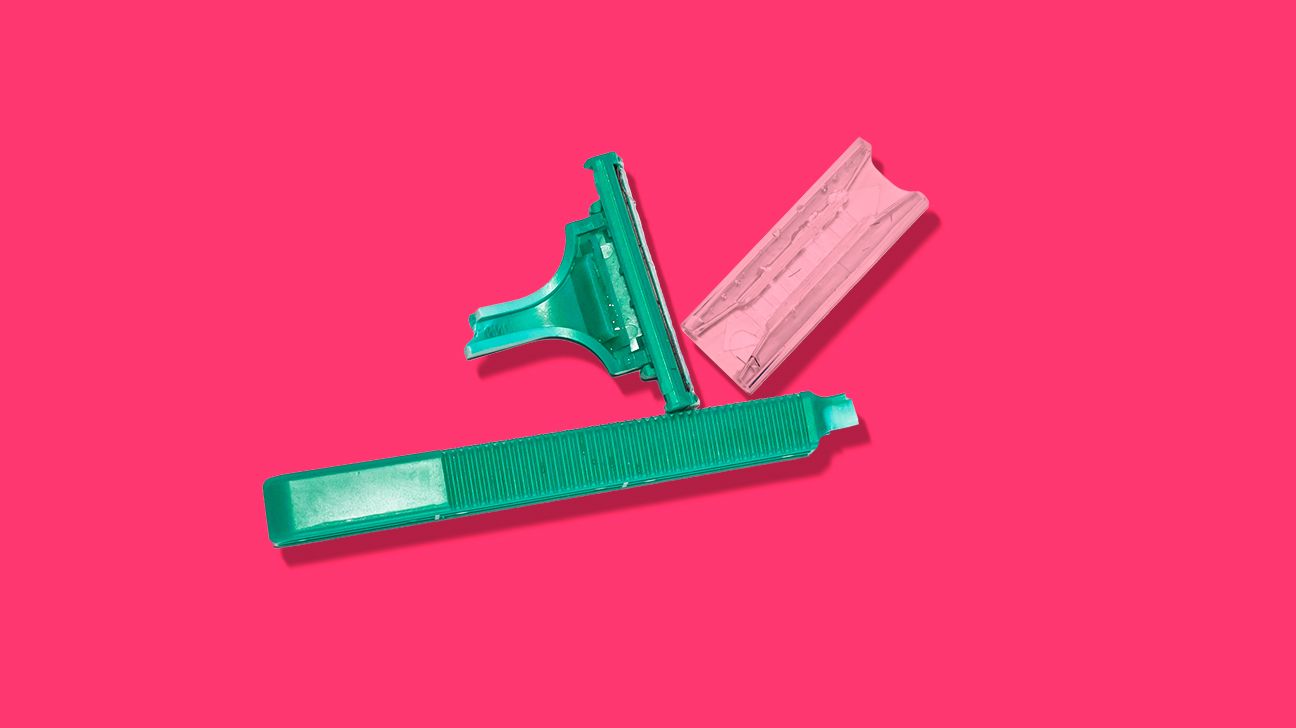
Pubes. Some like to let them flow freely, a Brian May wondermullet flowing freely in the wind. Many others prefer to keep their pants-perm a bit more in check.
However, there are no direct health benefits to a pube-free life — only how having or not having them makes you feel. The method you choose for removal is a lot more important than the choice you make for removal altogether.
So why shouldn’t you take a razor to your pubic hair? And is removing pubic hair necessary at all?
Let’s part the foliage and take a look.
If you’re of the mindset that you want to keep your downstairs nicely groomed, that’s absolutely fine. According to a 2017 study, people give the following reasons for taming the pube beast:
- making oral sex a more appealing option
- what your partner prefers
- hygiene (although whether it actually improves hygiene is up for debate)
What really matters is how you do it. And, although reaching down for a quick pre-sex shave in the bath seems like a great idea, it might be time to think about other methods.
Unless you know what you’re doing, it’s possible to leave cuts and injuries in a rather unpleasant area — and research suggests that around 25 percent of people do so.
The same study found that waxing can help reduce the risk of repeated injury. So thank goodness you don’t have to go through that again. This research simply found that you have to step your grooming game up rather than stop completely if you keep finding nicks and scratches.
Another piece of research found that shaving with a razor correlates with a higher risk of infection, dysplasia of the vulva, and cancer, particularly for people who shave the labia majora, or the “lips” of the vulva.
In fact, shaving, waxing, or plucking can make skin itchy, red, and irritated.
- genital burns after waxing
- vulvar or vaginal infection
- post-inflammatory hyperpigmentation
- an increased risk of sexually transmitted infections (STI)
- contact dermatitis
With this said, there are several studies mentioned that highlight shaving as the particularly risky option.
While you may prefer to see the back of pubic hair and feel neater/better groomed afterward, there’s no real advantage from a hygiene standpoint.
However, the Journal of Sexual Medicine suggests that, based on anecdotal evidence, getting rid of pubic hair can enhance how sex feels and how satisfying it can be.
The same research suggests that it’s a way for people to demonstrate their sexuality.
A different study found that, although the same didn’t apply for people who identified as men, those identifying as women used pubic hair removal as a way to increase their feelings of femininity.
While some have linked removing pubes to an increased risk of STIs, a study of female students at a university found no link at all between pubic hair grooming and STI transmission.
Science is still in two minds about the relationship between STIs and pubic hair removal, however, with a 2017 study showing a positive correlation between pubic grooming and self-reported STIs.
However, correlation is not causation — it might have been that more people who trimmed their bits were sexually active, which would naturally increases their risk of picking up an STI.
Bacially, if having pubic hair makes you feel self-conscious, there’s no harm in trimming or removing it — so long as you’re gentle and use the right methods. You’re perfectly entitled to feel just super duper about your private parts.
We’ve got a very helpful guide on how to get rid of pubic hair safely and comfortably here.
There’s pretty valid arguments for simply letting your pubes get on with it and become the Bob Ross they were always meant to be.
Humans are the only mammals with thick, coarse pubic hair. Most of us (a solid 95 percent,
In fact, according to an ongoing clinical trial, 62 percent of women report having removed the entire lot at one point.
While waxing kits might be getting ever more technologically advanced, people have been trimming or removing their pubes in ancient times. Nude paintings gained pubic hair in the late 19th century but up until then had nether regions that were usually bald as a coot.
Many say that they trim or remove their pubic hair for hygiene reasons.
But, actually, there’s zero science out there that supports this idea, bar removing any potential home into which pubic lice could move (erm… you’re not paying rent, so scram).
There’s a reason pubic hair stuck around as we evolved: Some scientists believe it traps pheromones to attract mates.
Plus, it may well prevent friction when we get it on. Hair on hair sticks less than skin on skin — whatever a lot of porn would have you believe.
So if you’re cool with it, there are some serious upsides to letting your pubic hair flourish unchecked. Maybe it’ll grow on you.
In short (lol), there’s nothing wrong with trimming or completely removing your pubes if it makes you feel good about your genitals and confident in front of sexual partners.
However, it may be best to avoid shaving and stick to waxing instead, as shaving increases the risk of laceration and infection. No method is risk-free regardless — even waxing can cause burns and hurt like a MF too.
What’s important is careful hair management and waxing technique.

